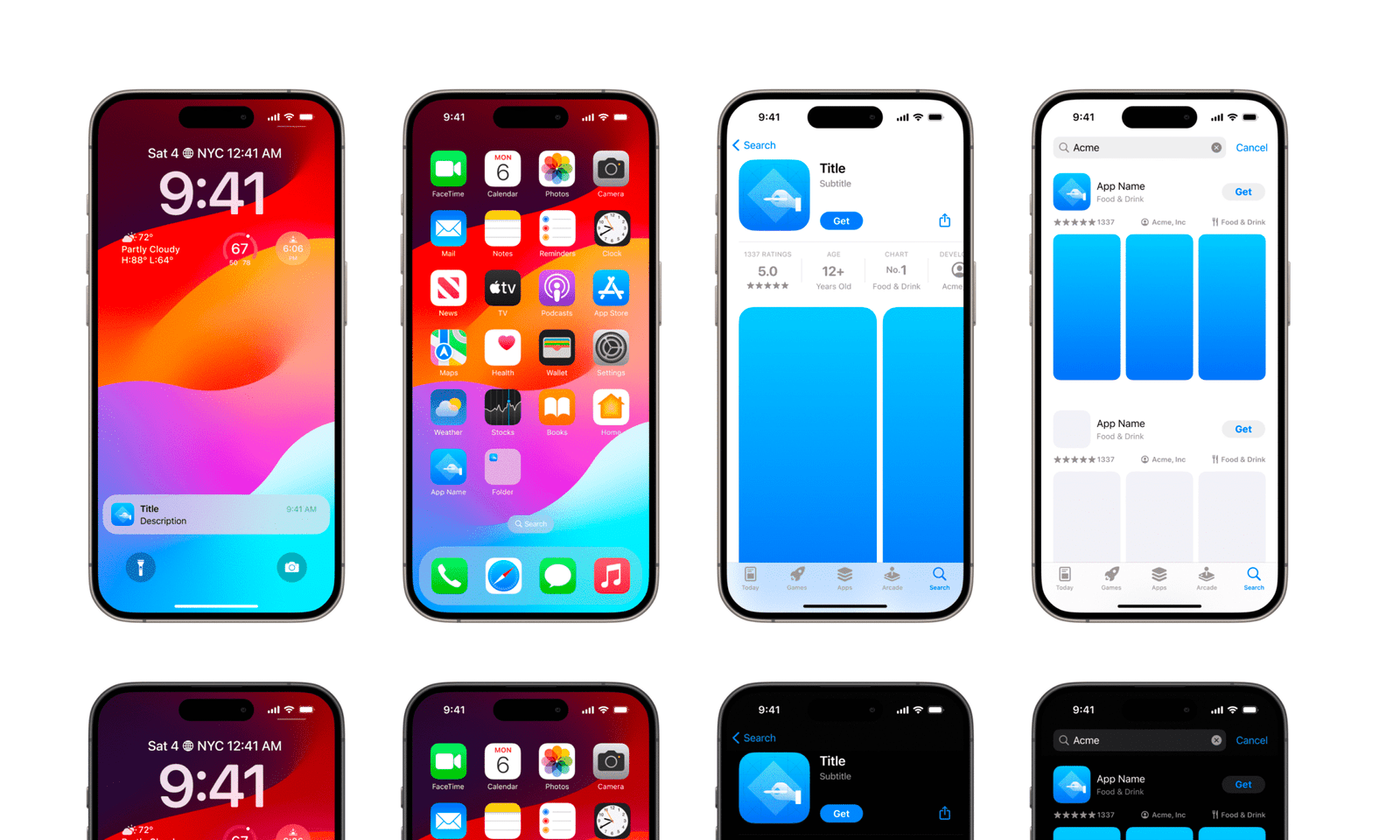Mobile applications have revolutionized the way we interact with the world. What started as simple tools for basic communication has evolved into powerful platforms that shape every aspect of our daily lives. From productivity and entertainment to healthcare and social interaction, mobile apps have become indispensable in the modern world.
In this article, we’ll delve into the growing role of mobile apps, the key trends shaping their development, and the opportunities and challenges they present for businesses and users alike.
1. The Rise of Mobile Apps: A Brief Overview
Mobile apps have become an integral part of the digital ecosystem. According to recent reports, over 5 million apps are available across platforms like the Apple App Store and Google Play. These apps serve a wide range of functions, from entertainment and social networking to shopping and banking. The proliferation of smartphones, which are increasingly powerful, has provided the perfect environment for mobile apps to thrive.
The introduction of smartphones with robust operating systems, like iOS and Android, laid the foundation for mobile app development. With each iteration of these platforms, the capabilities of mobile apps have expanded, making them more sophisticated and user-friendly. Today, apps are not only used for simple tasks but are essential tools for enhancing productivity, connecting with others, managing health, and even making life decisions.
2. Key Categories of Mobile Apps
Mobile apps can be broadly categorized into several types based on their purpose and functionality. Here are the most popular categories:
Social Media and Messaging Apps
Social media apps like Facebook, Instagram, and Twitter have become an essential part of modern communication. These platforms allow users to stay connected with family and friends, share experiences, and engage in discussions. Messaging apps, including WhatsApp and Telegram, offer instant communication with a wide reach, often replacing traditional SMS and emails.
The rise of social media apps has transformed how people engage with content, from news and entertainment to professional networking. These platforms have become not only personal tools but also business assets for marketing, brand building, and customer engagement.
Productivity Apps
Apps that help users stay organized, manage tasks, and boost productivity are among the most widely used. Tools like Evernote, Google Keep, and Microsoft Office suite of apps (Word, Excel, PowerPoint) enable users to collaborate on projects, share files, and complete tasks efficiently. These apps have become essential for professionals, students, and individuals who need to stay on top of their responsibilities.
Cloud-based productivity apps, such as Google Workspace and Microsoft 365, allow users to access documents and collaborate in real-time, breaking down the barriers of physical location and time zones. This accessibility has fueled remote work and collaboration across industries.
E-Commerce and Shopping Apps
E-commerce apps like Amazon, eBay, and Alibaba have made it easier than ever to shop from the comfort of your home. These platforms offer a wide array of products, from everyday essentials to luxury items, with the added convenience of doorstep delivery. The rise of mobile shopping apps has significantly changed consumer behavior, pushing traditional brick-and-mortar stores to enhance their online presence.
Other apps, such as Etsy or Depop, provide niche marketplaces for handmade goods, vintage items, and creative products. The mobile app revolution has democratized shopping, enabling small businesses and independent sellers to reach global audiences.
Health and Fitness Apps
Health and fitness apps have seen explosive growth in recent years. From step counters and workout trackers to telemedicine and mental health apps, these tools have empowered users to take control of their well-being. Apps like MyFitnessPal and Strava help users track their nutrition and exercise routines, while platforms like Calm and Headspace promote mindfulness and mental health.
Mobile apps have also played a key role in the rise of wearable technology, such as fitness trackers and smartwatches. These devices sync with apps to provide real-time health data, helping users monitor vital signs, physical activity, and sleep patterns.
Entertainment and Streaming Apps
With the advent of platforms like Netflix, YouTube, Spotify, and TikTok, mobile apps have transformed the entertainment industry. Whether it’s streaming movies, music, or podcasts, apps have become the primary way people consume entertainment on the go. They’ve disrupted traditional media outlets, such as cable television and radio, by providing personalized content and on-demand access.
Apps also provide social interaction through content creation and sharing. For instance, TikTok’s short-form video platform has given rise to viral trends and influencer-driven marketing, significantly influencing pop culture.
3. Mobile Apps and User Experience: The Key to Success
While functionality is important, user experience (UX) plays a crucial role in the success of any mobile app. An app’s design, usability, and performance can make or break its popularity. If users find the app difficult to navigate or if it experiences frequent crashes, they will likely abandon it in favor of a competitor.
Good UX design involves creating an intuitive interface, ensuring that app navigation is simple and clear, and optimizing performance to avoid slow loading times. It also includes considering the context in which users will be using the app—whether they’re at home, commuting, or in a professional setting. A well-designed app should seamlessly integrate into the user’s lifestyle.
4. Emerging Trends in Mobile App Development
As mobile technology continues to evolve, so does the landscape of mobile apps. Here are some trends that are shaping the future of mobile app development:
Artificial Intelligence and Machine Learning
Artificial intelligence (AI) and machine learning (ML) are becoming increasingly integrated into mobile apps. From personalized recommendations in e-commerce apps to virtual assistants like Siri and Google Assistant, AI is enhancing app functionality and providing a more tailored user experience.
In healthcare apps, AI-driven algorithms help analyze patient data, predict health trends, and even offer personalized treatment suggestions. Similarly, apps in the financial sector are using AI to detect fraud, optimize investments, and automate customer service.
Augmented Reality (AR) and Virtual Reality (VR)
AR and VR are revolutionizing industries such as retail, entertainment, and education. Mobile apps like Pokémon Go introduced augmented reality to a broad audience, allowing users to interact with virtual objects in real-world environments. AR is also being used in shopping apps to enable users to “try on” clothes or visualize how furniture would look in their home.
VR apps, though less common, offer immersive experiences in gaming, education, and training. These technologies have the potential to redefine how we interact with mobile apps in the future.
5G and Faster Connectivity
The roll-out of 5G networks promises to significantly enhance the performance of mobile apps. With faster download speeds and lower latency, 5G will enable mobile apps to offer more interactive and data-intensive experiences. Streaming high-definition video, playing graphics-intensive games, and conducting video calls with minimal delay will become the norm.
5G will also benefit industries such as healthcare and logistics, where real-time data processing and connectivity are crucial for success. Mobile apps that leverage 5G technology will be able to offer more sophisticated services to users in various sectors.
5. Security and Privacy: The Top Priority for Mobile Apps
As mobile apps store increasing amounts of personal data, security and privacy have become critical concerns. Data breaches, identity theft, and unauthorized access to sensitive information are growing threats. Developers must prioritize security measures such as encryption, two-factor authentication, and secure data storage to protect users’ privacy.
Mobile app security also involves compliance with regulations such as the General Data Protection Regulation (GDPR) in Europe and the California Consumer Privacy Act (CCPA). These laws impose strict guidelines on how companies collect, store, and use personal data, ensuring that users have control over their information.
6. The Future of Mobile Apps: What Lies Ahead?
The future of mobile apps is undoubtedly bright, with continued advancements in technology paving the way for new and exciting possibilities. As AI, AR, 5G, and other emerging technologies shape the app development landscape, mobile apps will become even more integrated into our daily lives. From transforming industries to enhancing personal experiences, mobile apps are set to become even more intuitive, immersive, and essential.
For businesses and developers, staying ahead of trends, prioritizing user experience, and ensuring security will be key to creating successful mobile apps. For users, mobile apps will continue to evolve, offering even greater convenience, functionality, and opportunities to connect, learn, and grow.


